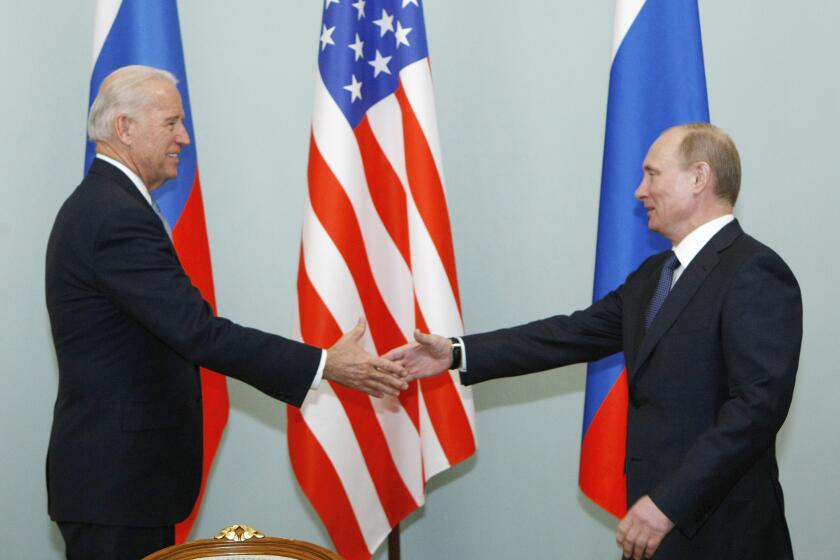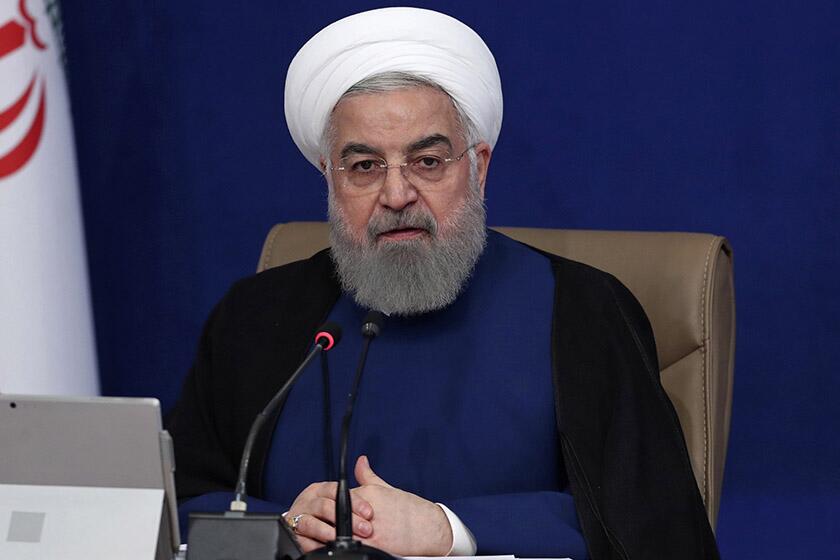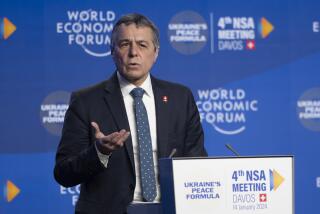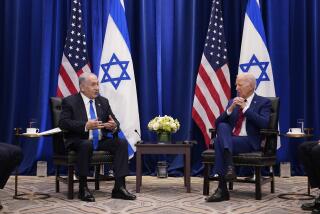U.S. and Russia envoys discuss Iran nuclear deal ahead of summit
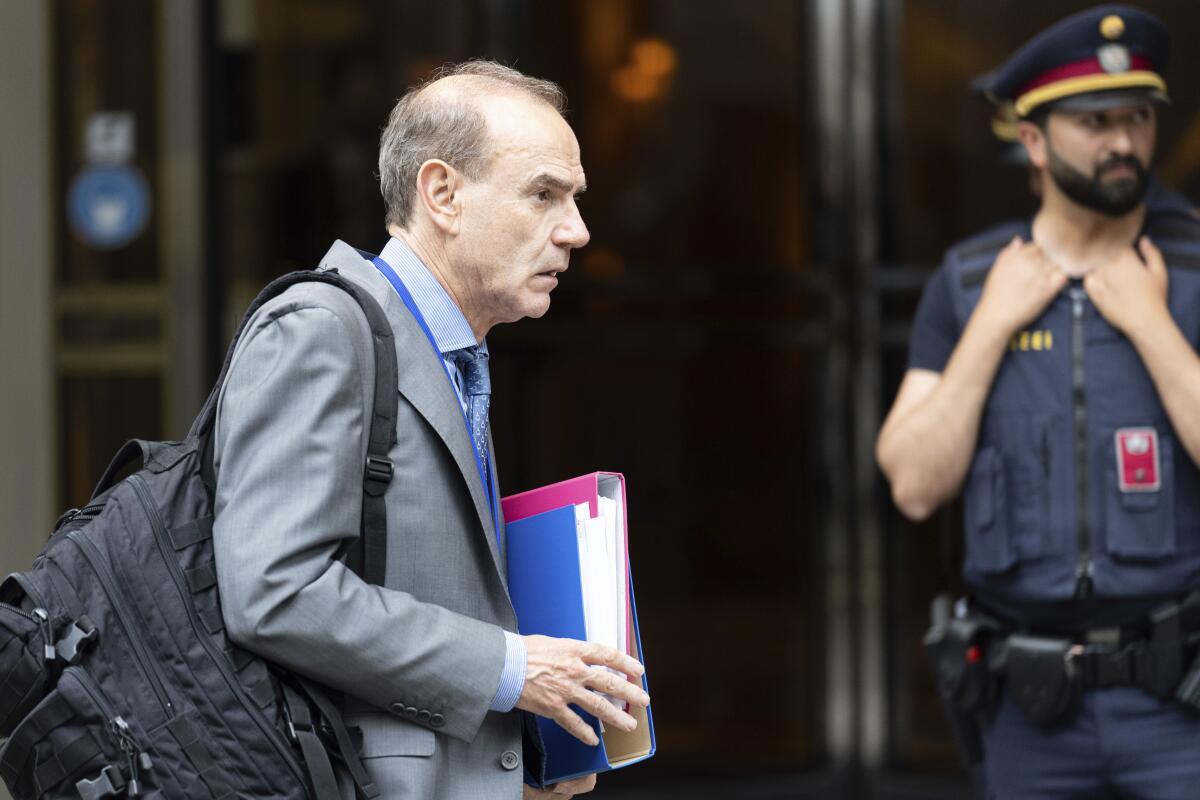
VIENNA — Delegations from Russia and the United States involved in nuclear negotiations with Iran held talks in Vienna on Monday, two days ahead of a summit meeting between President Biden and Russian President Vladimir Putin.
The United States is not directly involved in the Vienna negotiations but has regular contacts with participating diplomats.
Efforts to revive a 2015 nuclear containment deal for Iran are a rare topic of collaboration between the two global adversaries.
Mikhail Ulyanov, a senior diplomat who headed the Russian delegation at the meeting in Vienna, called the talks with U.S. counterparts “fruitful.”
“Our dialogue in Vienna seems to be proof that the two countries can maintain businesslike cooperation on issues of common interest, non-proliferation in this particular case,” Ulyanov wrote in a tweet.
The nuclear agreement was scuppered in 2018 when the Trump administration pulled the United States out of the accord, arguing that it handed Iran too many concessions.
Biden and Putin agree the nations’ relationship is at a low point before their summit. Trump sends the ex-KGB chief ‘warmest regards.’
Diplomats from China, Germany, France, Russia and Britain held joint talks with Iran on Saturday and multiple bilateral meetings afterward at a hotel in the center of the Austrian capital.
Matthew Rojansky, director of the Wilson Center’s Kennan Institute in Washington, said Russia was keen to curb some of Iran’s ambitions.
“Moscow still prefers to see Tehran checked in its aspiration to develop a weapon, but is much less motivated when it comes to checking Iran’s regional ambitions and its broader global misbehavior,” he told the AP.
“At the same time, Russia has a balancing act to perform in Syria, where Iran’s force of arms on the ground could become a problem for Russian ambitions.”
The Biden administration will join Iran and other world powers next week in talks aimed at reviving the 2015 nuclear deal that Trump sought to kill.
The 2015 agreement was designed to keep Iran’s nuclear program peaceful, imposing strict controls on uranium enrichment levels as well as the technology and facilities used for the process.
Iran stopped abiding by those limits after the U.S. withdrawal but insists it has no plan to build nuclear weapons — a claim that the U.S. and its Western allies dispute.
More to Read
Sign up for Essential California
The most important California stories and recommendations in your inbox every morning.
You may occasionally receive promotional content from the Los Angeles Times.
